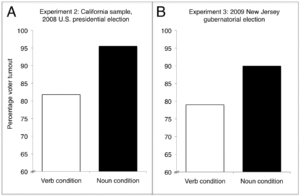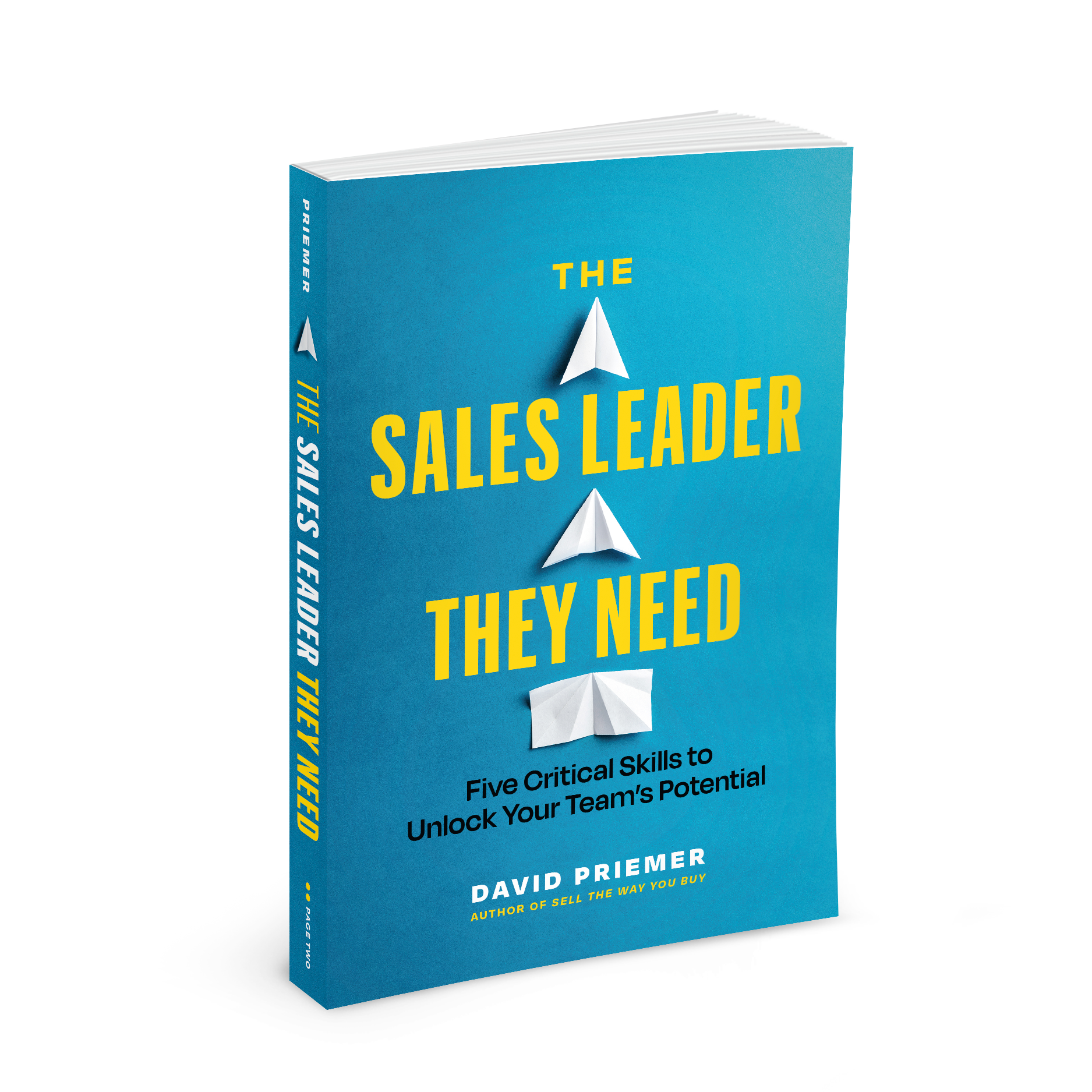Persuade Your Customers by Labeling Them
Some of the greatest sales lessons of the pandemic era came from governments and medical professionals trying to get the general public to comply with public health measures. From mask mandates to social distancing to vaccinations, crafting the right balance of guidelines and directives was hard enough. Getting people to actually follow them was quite another.
People don’t like being told what to do. In fact, the tendency to rebel or resist when we feel our freedom to choose is being restricted is a scientific principle known as reactance (a concept I discuss extensively in Sell The Way You Buy and in a previous post). Unfortunately, many of the tactics salespeople have been taught over the years trigger it!
For example, trying to “close” a customer and have them sign an agreement by a deadline of your choosing. Or pushing buyers to make a decision on the spot when they say they have to “think about it”.
Luckily, the science of persuasion provides a powerful tactic for overcoming this form of resistance; labeling.
Labeling is defined as describing a person in terms of their behavior. For example, if someone breaks a serious law we label them “a criminal”. Participants in an Olympic games are labeled “athletes”. And someone who writes a book is labeled an “author”. But labels are more than simply titles. For better or worse, labels come with a host of implied meanings, assumptions, and associated behaviors. For these reasons, when assigned to your customers with authentic empathy, labels can cut to the core of their identity and move them to act!
Labeling to Drive Behavior Change
In this bestselling book, Atomic Habits, author James Clear describes how we can use labels to create positive linkages to desired, long-lasting behaviors. For example, suppose you were trying to lose weight by incorporating healthy eating and regular exercise into your lifestyle. Rather than thinking of yourself as an ordinary person who practices healthy habits, labeling yourself as a “fit” person is more likely to bring about the desired identity and behavior change.
A runner (noun) is more likely to participate in a marathon than someone who runs (verb).
An author (noun) is more likely to pen a series of novels than someone who writes (verb).
In one study examining voter turnout, participants were asked a simple question with two different and randomized phrasings:
How important is it to you to be a voter in the upcoming election? (noun-phrasing)
How important is it to you to vote in the upcoming election? (verb-phrasing)
In both elections, labeling the individual as a voter (noun) versus simply as someone who votes (verb) was shown to result in increased voting behavior (17% and 14% increases respectively)

Source: Motivating voter turnout by invoking the self; Christopher J. Bryan, Gregory M. Walton, Todd Rogers, and Carol S. Dweck, PNAS August 2, 2011 108 (31) 12653-12656
In the pandemic arena, we saw politicians use labeling tactics to handle pointed questions from the media while encouraging their constituents to comply with the desired public health measures. For example, during a lockdown period, a government leader was hit with this antagonistic question from a journalist;
“In recent days we’ve all seen stories of people ignoring social distancing rules by gathering in parks and having house parties. Are you concerned that the public will continue to ignore your rules?”
To which the politician responded…
“Sure, there are a few outliers here and there, but I know the vast majority of our constituents are good people who care about their families and the well-being of their neighbors. And good people follow public health guidelines because they know it’s the right thing to do.”
Simply telling people what to do causes resistance. But labeling the public as “good people” increased the odds that they would behave in a manner consistent with that title.
Labeling as a Selling Tool
In a selling context, there are many ways the labeling approach can be used to align your product or service with the behaviors, beliefs, and values of your customers. For example:
A seller looking to make their customer feel more comfortable with their post-sale support might say something like…
“One thing you’ll find about us is that we are completely customer-obsessed. We believe when it comes to your investment, the experience is the product, so we focus just as much on post-sale support as we do on our solutions.”
A seller dealing with an objection that their solution is too fancy or expensive for their small business customer might say…
“It’s true. We have a very robust solution and we’re not for every small business. But the reason customers like you choose us is because they’re big-thinkers. They know they’re not going to be small forever and they’re looking for a single solution that will satisfy their needs now and in the future. The thought of changing and disrupting their operation midway through is too painful for them.”
A seller wanting to tout the configurability and low cost-of-ownership of their solution might say…
“Our solution is designed for tech-savvy organizations who want to be completely self-sufficient. Our customers are true solution owners and don’t want to call the vendor or a consultant every time they want to make a change.”
A seller looking to set a competitive landmine around their solution, knowing theirs isn’t as slick and modern as their competition’s but excels when it comes to privacy and security, might say…
“We’ve been working with a lot of security-minded organizations like yours lately who believe it’s just as important to evaluate the platform itself as it is the features.”
Note: as with any sales tactic, tone and delivery are critical to your success with labeling! For example, labeling a customer as “a smart and educated buyer who doesn’t want to be the cause of the largest data breach in their company’s history” is never a good idea. Instead, it’s important for your label and delivery to be genuine, empathetic, and authentic in order for it to have the desired effect.
From pandemic politics to self-help to the sales floor, the use of labeling in the realm of persuasive science and behavior change can be very powerful when done correctly. But as a savvy seller who loves to practice new tactics until you get them just right, you probably already knew that 😉
We promise never to send you junk or share your email! Just helpful sales insights.













